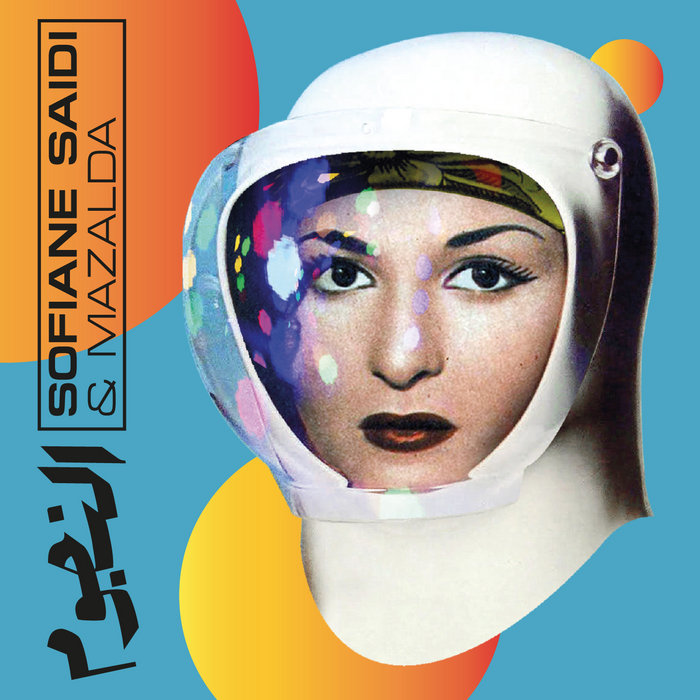
Gasbah Trisinti – Sofiane Saidi & Mazalda
this blog is GROOVY – check out great Soul, Funk, Jazz, Hip Hop, Bass, Breaks , Reggae, House n many more TUNES
Ah, raï! The sound that dances on the border between tradition and modernity. This vibrant music genre hails from Algeria and has taken the world by storm since its roots in the early 20th century. So, grab your friends, crank up those speakers, and let’s dive into the colorful history of raï!
Raï emerged in the bustling streets of Oran, a port city in northwest Algeria. Initially rooted in Bedouin folk music and influenced by various styles like French chanson and Spanish flamenco, it was a blend that resonated with both local rhythms and global sounds.
The word “raï” translates to “opinion” or “advice,” which is pretty fitting for a genre known for its storytelling lyrics about love, heartbreak, poverty—basically all those juicy bits of life we can relate to. By the 1920s-30s, raï singers began performing at weddings and local celebrations.
Fast forward to the 1970s when raï took a giant leap into modernity! Musicians started incorporating electric instruments—think guitars and synthesizers—giving birth to what many recognize today as contemporary raï. Artists like Cheikha Rimitti became major figures during this time; she sang about women’s rights with her cheeky lyrics while grooving audiences with her infectious energy.
One funny fact? Cheikha Rimitti once described how a concert turned chaotic when fans just couldn’t stop dancing. She humorously recalled dodging flying shoes thrown by overly excited fans who couldn’t contain their excitement!
By the late ’80s/early ’90s, artists like Cheb Mami and Khaled skyrocketed onto international stages! With songs blending pop hooks with traditional styles that made you want to shimmy right off your chair (like Khaled’s mega-hit “Didi”), they caught attention far beyond Algeria.
Speaking of Khaled – did you know he once tried his hand at being an actor? He starred in “The Last Tango In Paris,” but he hilariously forgot his lines on set multiple times! Guess musical improv isn’t always transferable!
In today’s diverse musical landscape, raï continues evolving through fusions with hip-hop, rock ‘n’ roll—and even electronic dance music (EDM). You’ll find collaborations where rappers drop verses over classic raï beats making for some seriously addictive tunes.
And get this—some musicians have had unexpected encounters while collaborating! Rachid Taha, another legendary figure in raï who blended it wonderfully with rock influences ended up jamming one night unexpectedly at an underground club…with members of The Rolling Stones! Can you imagine Mick Jagger vibing out to some classic Algerian rhythms?
But it hasn’t just been pure dancefloor success; there are lots of quirky moments along the way as well:
Fashion Fumbles: Many early performers didn’t really care much about fashion until they realized snazzy outfits could help them stand out more than their catchy tunes alone! As such—the more outrageous outfits often led to hilarious wardrobe malfunctions mid-show!
Dance Craze: In concerts throughout Europe during raids’ heyday abroad people would sometimes create comical little dance moves inspired by artists’ choreography — only later realizing they had no idea what any step meant culturally back home!
And speaking about surprises — Khaled found himself asked by fans if he knew Beyoncé!!! His playful response was asking them if THEY knew every Algerian singer—a delightful moment crossing cultures right there!
Today’s youth still embrace this funky genre merging centuries-old traditions wrapped around new social movements calling attention toward issues affecting contemporary society (think climate change or political protests).
New artists keep coming forth eager not only preserve but also reshape tradition while drawing influence from eclectic genres worldwide – can you say multi-cultural mish-mash?! Perhaps we’ll see future collaborations featuring everything from K-Pop stars busting moves alongside stylish newcomers representing true North African grooves?
So whether you’re bobbing your head listening through classics like “Aicha” played worldwide or jamming out fresh tracks hitting radios every other day; make sure you take note – there’s magic bubbling within each beat reflecting stories waiting patiently unfold.
Keep grooving folks — because when it comes down to it — raÏ isn’t just music… it’s cultural liberation served hot & spicy straight from Algiers!
Now get out there—you’ve got a playlist waiting leader-on-call style ready energize all present parties swiftly moving ahead towards groove town enthusiasm ideal for sharing vibes tonight SO TURN IT UP AND DANCE AWAY 🎶💃🏽🕺🏽

Gasbah Trisinti – Sofiane Saidi & Mazalda